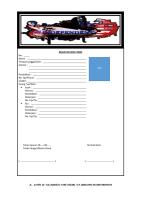Many men sayn that in sweveninges
Ther nys but fables and lesynges; But men may some swevenes sene Whiche
hardely that false ne bene, But afterwarde ben apparaunt.
Chaucer, the Romance of the Rose
(c. 1370)
Chaucer, the Romance of the Rose
(c. 1370)
The translation:
Many men say that in dreams There is nothing but talk and lies; But men may see some dreams Which are scarcely false, But afterward come true.
Many men say that in dreams There is nothing but talk and lies; But men may see some dreams Which are scarcely false, But afterward come true.
Language
change is both obvious and mysterious. The English of the late
fourteenth century is quite unlike that of our time. Without special
training, a speaker of Modern English would have great difficulty in
understanding the opening lines to The Romance of the Rose cited above.
THE NATURE OF LANGUAGE CHANGE
Language change is a change in a language which takes place over time. All living languages have changed and continue to change.English has undergone dramatic changes throughout three major periods of its history:
Language change is a change in a language which takes place over time. All living languages have changed and continue to change.English has undergone dramatic changes throughout three major periods of its history:
Old
|
Middle
|
Early Modern
|
Late Modern
|
450-1100 AD
|
1100-1500
|
1500-1800
|
1800-Present
|
Kinds of Language Change
Sound Change
a. Assimilation
A situation in which one sound becomes more like another
OE : /wulfas/ --> voiceless fricative
Mid. E : /wulvas/ --> voiced
Modern : wolf --> wolves
b. Dissimilation
A situation in which two similar sounds become less like one another.
fifth /fifθ/ --> /fift/
c. Deletion
A situation in which a sound is no longer pronounced.
Middle : nose /no:ze/
Modern: nose /nouz/
e. Insertion
A situation when a sound is added to the pronunciation of the word.
Old : athlete /ætθlit/
Middle : athlete /ætθəlit/
f. Monophthongization
A change from diphthong (a complex vowel sound consisting of two vowel sounds) to a simple vowel sound (a monophthong)
Rude, rule, new
g. Dipthongization
Old : hus /hu:s/
Modern: house /haus/
h. Metathesis
Change in the order of sound
Old Modern
hros horse
frist first
thridde third
bridd bird
i. Raising --> Lowering
Middle : noon /no:n/
Modern : noon /nu:n/
j. Backing and Fronting
Early modern : glass --> /a/
Late Modern : --> /æ/
Read More in Power Point form






0 comments:
Post a Comment